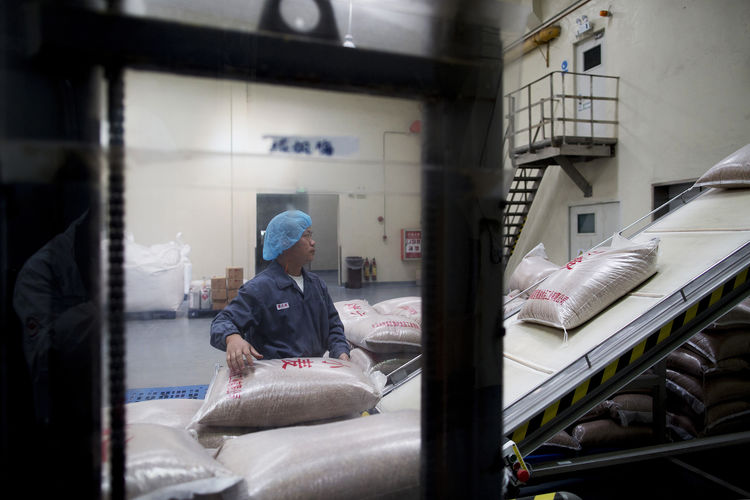- Lagos HQ for 52% of Chinese Owned Firms in Nigeria
The concentration of Chinese holdings in Nigerian firms is predominant in Lagos State where over half of firms with at least one Chinese shareholder operate.
An Asoko Insight analysis of Nigeria Corporate Affiars Commission data indicated that 3,321 registered companies in Nigeria have at least one shareholder of Chinese nationality.
Out of the 36 states in the country and the Federal Capital Territory, only Gombe and Taraba State do not have registered firms with stakeholders of Chinese nationality.
The FCT accounts for 15 percent of the total number of firms with Chinese ownership followed by Anambra, Kano and Ogun which constitute 6.4 percent, 4.7 percent and 2.9 percent respectively. Other states that completed the top ten are Enugu (2.9%), Kaduna (2.1%), Rivers (2.0%), Delta (1.9%) and Imo State (1.3%).
Lagos State is understandably leading the pack as it is the economic centre of the country with a diverse demography and a government constantly trying to improve the ease of business.
“Lagos is the commercial capital and natural centre for merchandise trade because the biggest ports are in Lagos,” said Muda Yusuf, the director general, Lagos Chamber of Commerce and Industry (LCCI).
“This is where the market is so importers, traders, and investors coming into Nigeria will go to the trouble to set base in Lagos which may be at an additional cost, but Lagos is still their best bet.”
The South West region had a total of 1,865 companies with Chinese ownership with Ogun and Oyo State driving the numbers with 97 and 24 companies respectively while Ekiti, Ondo and Osun has 4 each.
The North Eastern region had only 26 companies with Chinese ownership representing 0.8 percent of the total and was the least of all the regions.
Of the total 3,321, 47 firms had no registered address, but were nonetheless categorized as operational in Nigeria, often with a Chinese base of operation.
According to the report, the data by sector shows that less than 5 percent of firms with Chinese ownership are engaged in Mining or Oil and Gas extraction in Nigeria. Meanwhile, more than one-third of the firms are engaged in service delivery.
Industrial manufacturing accounts for just over 25 percent of the companies followed by Construction and Real Estate, which together represents 8 percent of the total. Education, Leisure and Tourism, Media and Consumer Goods fall at the lower end of the scale.
On how the trade war could bring more of these investments to Nigeria, according to Yusuf “there are some investors in China that produce to export to the United States now that it will be more difficult to export to the United States, some of them may be relocating to other countries where they can export to the US without any tariffs.”
“The trade war between US and China may be something positive for us because imports from China to the US will become more expensive because of the tariffs and that will create additional market for Nigeria if we take advantage of AGOA (African Growth and Opportunities Act) and other countries who are not engaged in a trade war with the US,” Yusuf said.
In 2017, Mckinsey, a global consulting firm, reported that out of the 930 Chinese companies operating in Nigeria, only 317 are documented by the Chinese ministry of commerce. The report also highlighted issues of labour and environmental violations by Chinese-owned businesses ranging from inhumane working conditions to illegal extraction of natural resources.

 Naira3 weeks ago
Naira3 weeks ago
 News4 weeks ago
News4 weeks ago
 Naira4 weeks ago
Naira4 weeks ago
 Naira3 weeks ago
Naira3 weeks ago
 Jobs3 weeks ago
Jobs3 weeks ago
 Travel3 weeks ago
Travel3 weeks ago
 Naira3 weeks ago
Naira3 weeks ago
 Investment4 weeks ago
Investment4 weeks ago






























